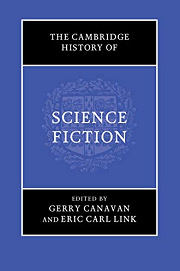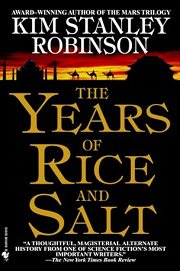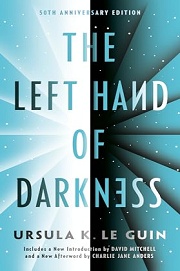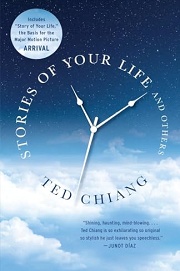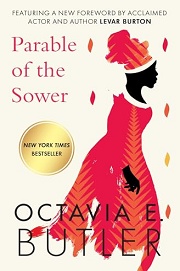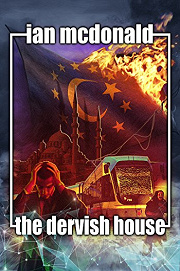Share your thoughts in a quick Shelf Talk!
The Cambridge History of Science Fiction by Gerry Canavan and Eric Carl Link
From early visions of other worlds to the genre’s twenty-first-century frontiers, The Cambridge History of Science Fiction maps the conversations that shaped SF. A sweeping, accessible guide for readers who want to see how big ideas traveled from pulp pages to cultural touchstones.
Have you read this book? Share what you liked (or didn’t), and we’ll use your answers to recommend your next favorite read!
Love The Cambridge History of Science Fiction but not sure what to read next?
These picks are popular with readers who enjoyed this book. Complete a quick Shelf Talk to get recommendations made just for you! Warning: possible spoilers for The Cambridge History of Science Fiction below.
In The Cambridge History of Science Fiction, did you enjoy ...
... the panoramic, century-spanning sweep of SF history?
The Years of Rice and Salt by Kim Stanley Robinson
If the way the Cambridge volume moves from Mary Shelley through Wells, cyberpunk, and beyond hooked you, you'll love how The Years of Rice and Salt redraws the entire map of world history after the Black Death. You follow recurring souls—B, K, and I—reincarnating across centuries, from Timur’s campaigns to a Chinese-led scientific revolution, watching ideas, empires, and religions evolve. The book delivers that same sweeping perspective you enjoyed, but dramatized through pilgrimages, expeditions, salons, and wars, culminating in a moving, thought-heavy finale about science, progress, and memory.
... the sociological and anthropological lenses on speculative worlds?
The Left Hand Of Darkness by Ursula K. Le Guin
You appreciated how the Cambridge history foregrounds SF’s social thought—Le Guin’s work likely came up a lot. The Left Hand of Darkness drops you into Gethen with envoy Genly Ai and the exiled Estraven, where gender is fluid and politics are glacial. The epic crossing of the Gobrin Ice isn’t just survival; it’s a study in culture, trust, and language. If you liked the book’s attention to SF as a tool for examining society, this novel gives you that lens with unforgettable, character-rooted stakes.
... the rigorous, idea-dense analysis that makes you stop and think?
Stories of Your Life and Others by Ted Chiang
The Cambridge collection prizes big ideas and clear argument; Ted Chiang turns that same intellectual rigor into fiction. In “Story of Your Life,” linguist Louise Banks learns Heptapod B and begins to perceive time nonlinearly; in “Division by Zero,” mathematical certainty fractures a marriage; and “Seventy-Two Letters” reimagines biology via Victorian nomenclature. Each story delivers the kind of conceptual clarity and philosophical bite you relished in the critical essays—only now with emotional stakes that linger.
... the focus on Afrofuturist and marginalized perspectives in SF?
The Parable of the Sower by Octavia E. Butler
If you were drawn to chapters on Octavia Butler, Afrofuturism, and global SF, Parable of the Sower will hit home. You walk with Lauren Olamina through a collapsing California, watching her forge Earthseed, navigate danger with Bankole and her traveling companions, and insist that "God is Change." Butler’s grounded worldbuilding and moral clarity echo the critical threads you enjoyed, but with pulse, pain, and hard-won hope that make those ideas visceral.
... the multi-voiced, cross-cutting approach that assembles a bigger picture?
The Dervish House by Ian McDonald
The Cambridge volume’s many perspectives showed how different voices map the field; The Dervish House does that inside one story. Across a sweltering week in near-future Istanbul, you hop between Necdet’s terrifying tram attack visions, Can’s toy-robot “bee” surveillance, Adnan’s high-stakes nanotech deal, and Ayşe’s hunt for a mythical Mellified Man. The mosaic narrative pieces together finance, religion, and technology into a single, dazzling portrait—just like the scholarly chorus you enjoyed, but propulsive and intimate.
Unlock your personalized book recommendations! Just take a quick Shelf Talk for The Cambridge History of Science Fiction by Gerry Canavan and Eric Carl Link. It’s only a few questions and takes less than a minute.
